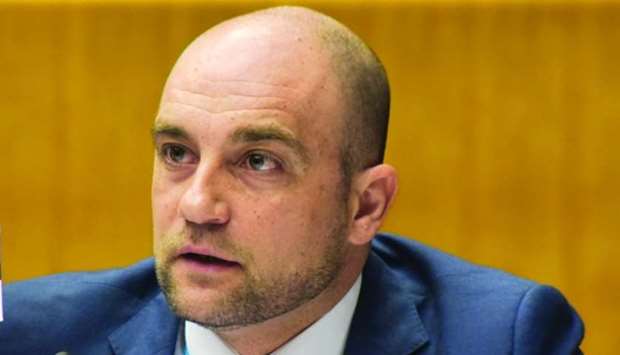*The animated series teach children values associated with ethical behaviour and socially-acceptable conducts
The United Nations Office on Drugs and Crime (UNODC) is in talks with some countries in the region to broadcast The Zorbs in different languages, including Arabic, a UNODC official has told Gulf Times.
UNODC launched The Zorbs in Vienna this year as part of its Education for Justice (E4J) initiative, making this group of unique alien characters as ambassadors of peace, justice and rule of law.
“We are now fine tuning the Arabic version (of The Zorbs) and some of the tools for broadcast,” said Marco Teixeira, senior programme manager of UNODC’s Global Programme for the Implementation of the Doha Declaration, who was in Qatar recently.
The animated series has been designed as a fun yet informative educational tool and comprises a set of animated videos that covers issues related to justice, cybercrime, human rights, gender and integrity.
Teixeira noted that such initiative is now surpassing 300,000 direct beneficiaries, especially teachers, students, and young children, among others, in various countries globally.
UNODC, he added, also concluded 171 educational tools and materials tailored for teachers/educators aimed at teaching and creating awareness on issues related to the rule of law and a culture of lawfulness.
“The Zorbs have been created to basically teach children values and principles associated with ethical behaviour and socially-acceptable conducts,” the UNODC official said. “We also launched a series of cartoons which are auxiliary to the teaching of these elements that the Zorbs represent.”
The series, according to UNODC, tells the story of four friends who left their chaotic planet, Zorb, searching for a more peaceful life. When they landed on Earth, they started promoting values such as acceptance, integrity, fairness, and respect.
All the episodes of The Zorbs are available online and can be used by teachers and parents globally. The series will be broadcast on national television in some countries.
About measuring the impacts of these kinds of initiatives, Teixeira said they conduct pre- and post-training testing to have a perception of the knowledge increase of the beneficiaries.
“This is a very specialised niche of state that we work, we have an average of 94% (surveys) that says their behaviour or their skills have improved after the training, 96% of our beneficiaries, three months later, say they are still using the tools, skills, and knowledge they acquired,” he explained.
“Another element is the social outreach and awareness that we create with regards to culture of peace, lawfulness and rule of law,” Teixeira said. “Our social media and digital footprint are on the scale of 3.5mn viewers in the last cycle, which means that the topics of rule of law have been brought to the attention of the general public.”
UNODC is also using sports to provide positive experiences and support healthy development in young people, while its Judicial Integrity initiative aims to assist judiciaries in strengthening judicial integrity and preventing corruption in the justice sector, in line with Article 11 of the UN Convention against Corruption.
Teixeira also announced earlier that some 500 judicial practitioners are expected to gather in Doha in November this year for the second Global Judicial Integrity Network conference.


